Are you looking to add some extra flavor and health benefits to your meals? Look no further! In this article, we will explore the amazing benefits of 10 popular spices for healthy eating. From boosting metabolism to reducing inflammation, these spices are not only delicious but can also enhance your overall well-being. Whether you are a kitchen novice or a seasoned chef, adding these spices to your pantry is a simple and tasty way to elevate your meals and take your health to the next level. So, let’s spice up our lives and discover the fantastic advantages of these 10 popular spices!
1. Turmeric
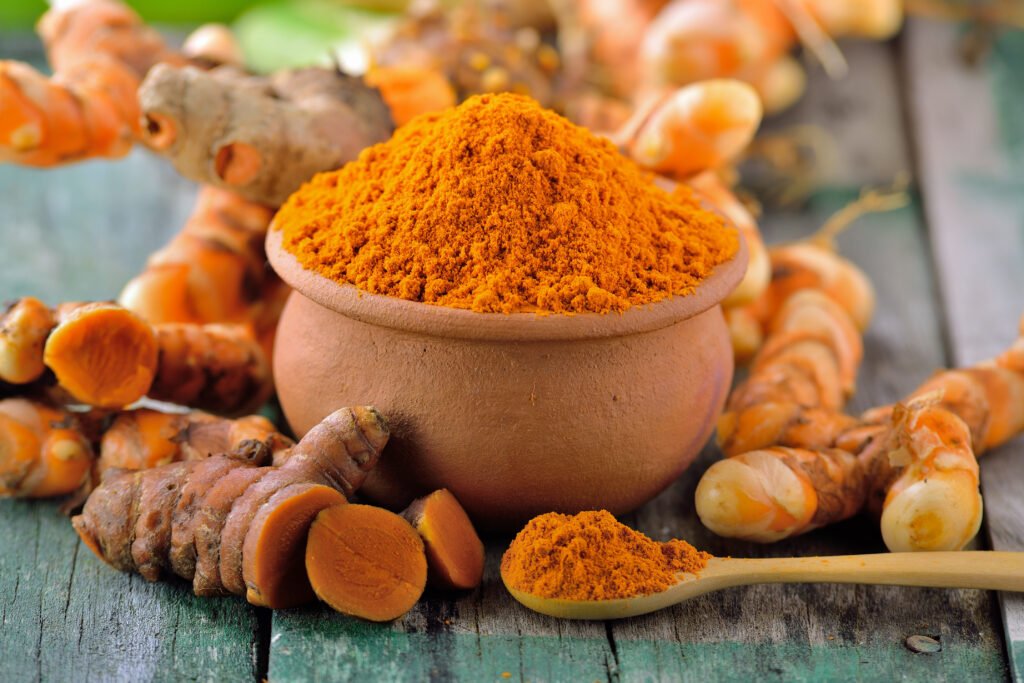
Turmeric is a vibrant yellow spice that has been used for centuries in traditional medicine. One of the key benefits of turmeric is its powerful anti-inflammatory properties. Curcumin, the active compound in turmeric, has been shown to reduce inflammation in the body. By incorporating turmeric into your diet, you can potentially help combat chronic inflammation, which is linked to various health issues such as heart disease, diabetes, and arthritis.
Not only does turmeric offer anti-inflammatory benefits, but it is also known to improve digestion. Turmeric stimulates the production of bile, which helps break down fats and aids in the digestion process. This can help alleviate symptoms of indigestion, bloating, and gas. Adding a pinch of turmeric to your meals or enjoying a warm cup of turmeric tea can promote good digestive health.
Turmeric is also known to boost the immune system. Its powerful antioxidant properties help protect the body against damage from harmful free radicals. Additionally, turmeric has antimicrobial properties that can help prevent infections. Including turmeric in your diet can strengthen your immune system and help you stay healthy.
Another incredible benefit of turmeric is its support for brain health. Curcumin has the ability to cross the blood-brain barrier, which allows it to exert its beneficial effects on the brain. Studies have shown that curcumin can increase levels of brain-derived neurotrophic factor (BDNF), a protein that promotes the growth and survival of brain cells. By enhancing brain function and reducing the risk of neurodegenerative diseases such as Alzheimer’s, turmeric can support overall brain health.
Research suggests that turmeric may also have potential cancer-fighting properties. Curcumin has been shown to inhibit the growth of cancer cells and prevent the spread of tumors. While more studies are needed to fully understand the anticancer effects of turmeric, adding this vibrant spice to your meals can be a proactive step towards cancer prevention.
2. Cinnamon

Cinnamon is a fragrant spice that adds warmth and flavor to a variety of dishes. Beyond its delicious taste, cinnamon is packed with health benefits. One of its key benefits is its ability to help control blood sugar levels. Cinnamon contains compounds that can mimic the effects of insulin and improve insulin sensitivity, which is crucial for maintaining stable blood sugar levels. This makes cinnamon a valuable spice for individuals with diabetes or those looking to manage their blood sugar levels.
In addition to blood sugar control, cinnamon also possesses anti-inflammatory effects. Chronic inflammation in the body can contribute to the development of various diseases, including heart disease and cancer. By incorporating cinnamon into your diet, you can potentially lower inflammation levels and reduce the risk of chronic diseases.
Cinnamon is also beneficial for heart health. Studies have shown that cinnamon can lower levels of bad cholesterol (LDL) and triglycerides while increasing good cholesterol (HDL). This can help reduce the risk of heart disease and improve overall cardiovascular health.
As an antioxidant-rich spice, cinnamon helps combat oxidative stress in the body. Antioxidants work by neutralizing free radicals, which are unstable molecules that can damage cells and contribute to aging and disease. By adding cinnamon to your meals, you can increase your antioxidant intake and protect your body against oxidative damage.
Furthermore, cinnamon has been shown to improve brain function. Research suggests that the scent of cinnamon can enhance cognitive processes such as attention, memory, and visual-motor speed. Including cinnamon in your diet or using cinnamon-scented candles or essential oils can potentially provide a mental boost and support brain health.
3. Ginger
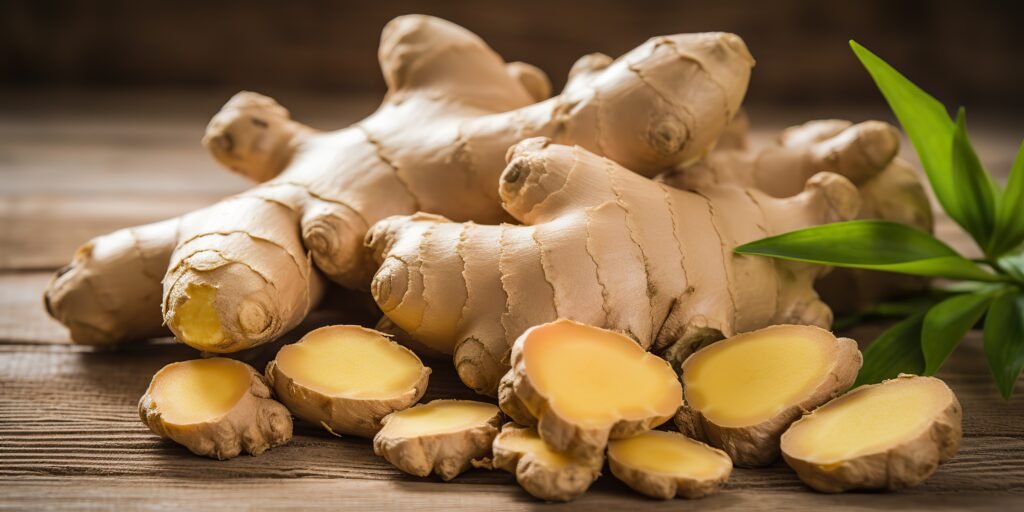
Ginger is a versatile spice that is widely used for its flavor and medicinal properties. One of the primary benefits of ginger is its ability to promote digestive health. Ginger contains compounds called gingerols and shogaols, which stimulate the production of digestive enzymes and improve overall digestion. Consuming ginger can alleviate symptoms of indigestion, bloating, and stomach discomfort.
In addition to its digestive benefits, ginger is known for its ability to reduce nausea. Studies have shown that ginger can effectively reduce symptoms of nausea and vomiting, particularly in pregnant women and those undergoing chemotherapy. Ginger can be consumed in various forms such as ginger tea, ginger candies, or added to meals to help alleviate nausea.
Ginger also offers anti-inflammatory benefits. Chronic inflammation in the body can lead to various health issues, including arthritis, heart disease, and certain types of cancer. By incorporating ginger into your diet, you can potentially reduce inflammation levels and support overall health.
Furthermore, ginger has been used for centuries as a natural pain reliever. Its anti-inflammatory properties can help alleviate pain and discomfort associated with conditions such as arthritis, menstrual cramps, and muscle soreness. Adding ginger to your meals or drinking ginger tea can provide relief from pain.
Lastly, ginger has immune-boosting properties. It contains antioxidants that help protect the body against oxidative stress and strengthen the immune system. Consuming ginger regularly can help fortify your immune system and reduce the risk of infections and illnesses.
4. Garlic
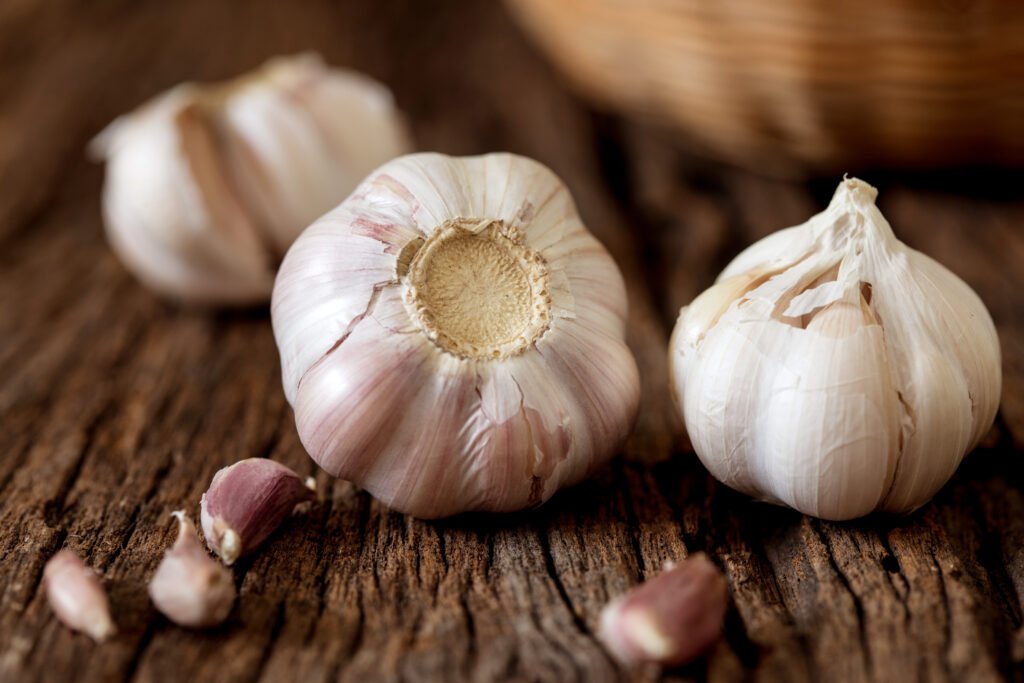
Garlic is a well-known spice that adds a distinctive flavor to a wide range of dishes. Beyond its culinary uses, garlic offers numerous health benefits. One of the key benefits of garlic is its ability to support cardiovascular health. Garlic can help lower blood pressure, reduce cholesterol levels, and improve blood circulation. These effects can reduce the risk of heart disease and promote optimal heart health.
Garlic is also known for its antibacterial properties. It contains compounds with antimicrobial effects that can help fight against harmful bacteria and fungi. Consuming garlic regularly can potentially boost your body’s defense against infections and promote overall health.
In addition to its antibacterial effects, garlic is a powerful immune system booster. It stimulates the production of white blood cells, which play a crucial role in fighting off infections and diseases. By incorporating garlic into your diet, you can strengthen your immune system and improve your body’s ability to ward off illnesses.
Studies have suggested that garlic may have cancer prevention properties. Garlic contains organosulfur compounds that have been shown to inhibit the growth of cancer cells and reduce the risk of certain types of cancer, including colorectal and stomach cancer. While more research is needed, adding garlic to your meals can potentially provide some protection against cancer.
Lastly, garlic is beneficial for bone health. It contains compounds that promote the regeneration of bone tissue and can help prevent age-related bone loss. Including garlic in your diet can support strong and healthy bones, especially as you age.
5. Rosemary

Rosemary is an aromatic herb that has been used for centuries for both culinary and medicinal purposes. One of the key benefits of rosemary is its ability to enhance memory. Research suggests that rosemary contains compounds that can improve cognitive function and memory. Inhaling the scent of rosemary or incorporating it into your meals can potentially enhance your mental clarity and boost memory.
Rosemary also offers anti-inflammatory effects. Chronic inflammation is known to contribute to various health issues, including heart disease, diabetes, and arthritis. By incorporating rosemary into your diet, you can potentially reduce inflammation levels and support your overall health.
In addition to its anti-inflammatory benefits, rosemary is beneficial for digestive health. It can help stimulate the production of digestive enzymes, promote healthy gut bacteria, and alleviate symptoms of indigestion and bloating. Adding rosemary to your meals can assist in maintaining good digestive health.
As an antioxidant-rich herb, rosemary helps protect the body against oxidative stress. Oxidative stress occurs when there is an imbalance between free radicals and antioxidants in the body, leading to cellular damage and aging. By increasing your intake of antioxidants through rosemary consumption, you can potentially slow down the aging process and support overall health.
Research has also suggested that rosemary may have potential cancer-fighting properties. Some of the compounds found in rosemary have been shown to inhibit the growth of cancer cells and protect against DNA damage. While further studies are needed, incorporating rosemary into your meals can potentially provide some protection against cancer.
6. Oregano

Oregano is a fragrant herb that is commonly used in Mediterranean and Mexican cuisine. Beyond its culinary uses, oregano offers several health benefits. One of its key benefits is its antibacterial properties. Oregano contains compounds such as carvacrol and thymol, which have been shown to inhibit the growth of harmful bacteria. Consuming oregano can potentially help fight off bacterial infections and promote overall health.
Oregano is also rich in antioxidants. Antioxidants protect the body against oxidative stress and free radical damage, which can lead to various diseases and aging. By adding oregano to your meals, you can increase your antioxidant intake and support your overall health.
In addition to its antibacterial and antioxidant properties, oregano is beneficial for respiratory health. It contains compounds that can help relieve coughs, congestion, and promote healthy respiratory function. Drinking oregano tea or using oregano essential oil can provide relief from respiratory issues.
Oregano is also known for its digestive health benefits. It can help promote healthy digestion, alleviate symptoms of indigestion, and support gut health. Including oregano in your meals or taking oregano supplements can potentially improve your digestive function.
Furthermore, oregano offers anti-inflammatory effects. Chronic inflammation is associated with various health conditions, including heart disease, arthritis, and cancer. By incorporating oregano into your diet, you can potentially reduce inflammation levels and support overall health.
7. Thyme

Thyme is a versatile herb that is widely used in cooking for its aromatic flavor. However, thyme also offers numerous health benefits. One of its key benefits is its antioxidant properties. Thyme contains compounds that can neutralize harmful free radicals and reduce oxidative stress in the body. By incorporating thyme into your meals, you can increase your antioxidant intake and protect your body against cellular damage.
Thyme is also beneficial for respiratory health. It contains compounds that can help alleviate coughs, bronchitis, and other respiratory symptoms. Consuming thyme tea or using thyme-infused oil can help promote healthy respiratory function.
In addition to its respiratory benefits, thyme is also beneficial for digestive health. It can help stimulate the production of digestive enzymes, reduce bloating and gas, and support overall digestion. Adding thyme to your meals or drinking thyme tea can promote good digestive health.
Thyme is also known for its bone health benefits. It contains minerals such as calcium and vitamin K, which are essential for maintaining strong and healthy bones. Incorporating thyme into your diet can potentially support bone density and reduce the risk of osteoporosis.
Furthermore, thyme offers benefits for skin health. It contains compounds with antibacterial and antifungal properties that can help fight against skin infections and promote healthy skin. Applying thyme-infused oil or using thyme-based skincare products can be beneficial for maintaining clear and healthy skin.
8. Cumin
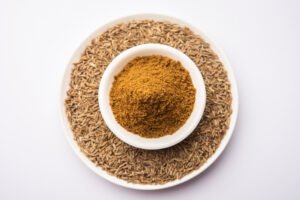
Cumin is a spice that is widely used in various cuisines around the world. Apart from its delicious flavor, cumin offers several health benefits. One of its key benefits is its ability to promote digestive health. Cumin stimulates the production of digestive enzymes, which aids in the breakdown of food and promotes efficient digestion. Including cumin in your meals can help alleviate symptoms of indigestion, bloating, and gas.
Additionally, cumin possesses anti-inflammatory benefits. Chronic inflammation is linked to various health issues, including heart disease, diabetes, and arthritis. By incorporating cumin into your diet, you can potentially lower inflammation levels and support overall health.
Cumin also provides immune system support. It contains antioxidants that help strengthen the immune system and protect the body against infections and diseases. By adding cumin to your meals, you can fortify your immune system and support your overall well-being.
Furthermore, studies have suggested that cumin may have potential cancer prevention properties. Cumin contains compounds that have been shown to inhibit the growth of cancer cells and reduce the risk of certain types of cancer, including colorectal and breast cancer. While more research is needed, incorporating cumin into your diet may provide some protection against cancer.
Lastly, cumin has been associated with weight loss benefits. It contains compounds that can increase metabolism and promote fat breakdown. By adding cumin to your meals or drinking cumin-infused water, you can potentially aid in weight management and support your weight loss goals.
9. Paprika
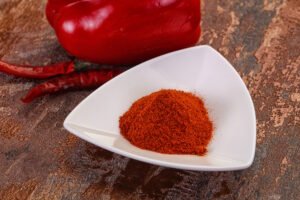
Paprika is a vibrant spice made from dried, ground peppers. It adds a rich flavor and color to various dishes. Beyond its culinary uses, paprika offers numerous health benefits. One of its key benefits is its antioxidant properties. Paprika contains carotenoids, which are potent antioxidants that help protect the body against oxidative stress and damage. By including paprika in your meals, you can increase your antioxidant intake and promote overall health.
Paprika is also beneficial for eye health. It contains carotenoids such as lutein and zeaxanthin, which are essential for maintaining healthy vision and preventing age-related macular degeneration. Consuming paprika regularly can help support good eye health and preserve your vision.
In addition to its eye health benefits, paprika also provides immune system support. It contains vitamins and minerals that strengthen the immune system and help the body fight off infections and diseases. Adding paprika to your meals can help boost your immune system and keep you healthy.
Paprika is known for its anti-inflammatory effects. Chronic inflammation is linked to various health issues, including heart disease, arthritis, and cancer. By incorporating paprika into your diet, you can potentially reduce inflammation levels and support overall health.
Lastly, paprika is beneficial for digestive health. It aids in digestion, reduces bloating and gas, and promotes a healthy gut. Including paprika in your meals can support good digestive function and alleviate digestive discomfort.
10. Cayenne Pepper
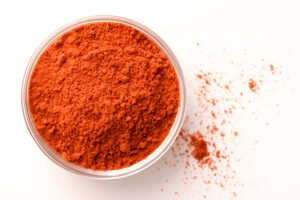
Cayenne pepper is a fiery spice that adds heat and flavor to dishes. Beyond its intense taste, cayenne pepper offers several health benefits. One of its key benefits is its ability to provide pain relief. Cayenne pepper contains capsaicin, a compound that has been shown to reduce pain by blocking pain signals to the brain. Applying topical creams or consuming cayenne pepper can potentially alleviate pain associated with conditions such as osteoarthritis and nerve damage.
Cayenne pepper is also beneficial for weight management. It can boost metabolism and increase fat burning, making it a useful aid for weight loss. Consuming cayenne pepper or adding it to your meals can help support your weight loss goals and promote a healthier body composition.
In addition to its weight management benefits, cayenne pepper possesses anti-inflammatory properties. Chronic inflammation can contribute to various health issues, including heart disease, diabetes, and arthritis. By incorporating cayenne pepper into your diet, you can potentially reduce inflammation levels and support overall health.
Cayenne pepper is also beneficial for digestive health. It stimulates the production of digestive enzymes, promotes healthy gut bacteria, and aids in the digestion process. Consuming cayenne pepper can help alleviate symptoms of indigestion, bloating, and gas.
Furthermore, cayenne pepper boosts metabolism. It contains capsaicin, which has been shown to increase thermogenesis, a process that generates heat and burns calories. By adding cayenne pepper to your meals, you can potentially boost your metabolism and support weight management.
In conclusion, incorporating these 10 popular spices into your diet can provide numerous health benefits. From reducing inflammation and supporting digestion to boosting your immune system and promoting overall health, these spices add flavor while enhancing your well-being. So, next time you’re preparing a meal, consider adding some turmeric, cinnamon, ginger, garlic, rosemary, oregano, thyme, cumin, paprika, or cayenne pepper to experience the many advantages they offer for healthy eating.


